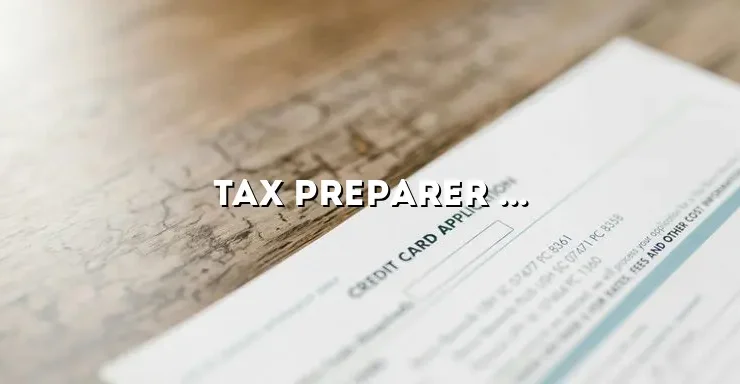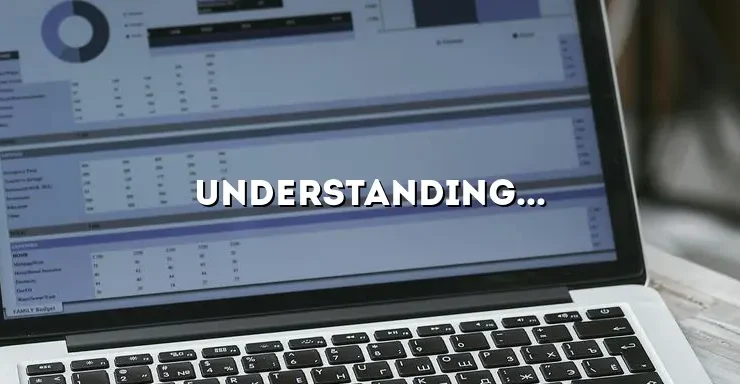
As a tax preparer, your role in assisting clients with their financial matters is crucial. However, the complexities of the tax landscape and the ever-changing regulations can expose your business to potential risks and liabilities. To safeguard your business and provide peace of mind to your clients, it is essential to have tax preparer insurance. This comprehensive guide will delve into the importance of tax preparer insurance and how it can protect your business and clients from financial loss and legal disputes.
The Need for Tax Preparer Insurance
When it comes to tax preparation, even the most experienced professionals can make mistakes or overlook critical details. These errors can result in financial loss for your clients or even lead to lawsuits against your business. That’s why having tax preparer insurance is crucial. It provides a safety net by covering the costs associated with legal defense, settlements, or judgments in case of errors, omissions, or negligence claims.
Understanding the Risks Faced by Tax Preparers
As a tax preparer, you handle sensitive financial information and provide advice that can have significant financial implications for your clients. This level of responsibility exposes you to various risks, including:
- Errors and Omissions: Mistakes in tax calculations, overlooking deductions, or misinterpreting tax laws can lead to financial losses for your clients and potential legal claims against your business.
- Identity Theft and Data Breaches: Tax preparers often store clients’ personal and financial information, making them an attractive target for cybercriminals. A data breach can result in financial loss, identity theft, and reputational damage.
- Legal Disputes: Disgruntled clients may file lawsuits alleging negligence, fraud, or breach of fiduciary duty. Legal defense costs alone can be financially devastating without appropriate insurance coverage.
Protecting Your Clients and Your Business
Tax preparer insurance provides a crucial layer of protection for both your clients and your business. By having the right insurance coverage in place, you can mitigate the financial risks associated with errors, omissions, and legal claims. Furthermore, it demonstrates your commitment to professionalism, instills confidence in your clients, and can differentiate you from competitors who may not have adequate coverage.
Types of Tax Preparer Insurance
When it comes to tax preparer insurance, there are several types of coverage to consider. Each type serves a specific purpose and offers protection against different risks. Understanding these options will help you make an informed decision about the coverage that best suits your business needs.
Professional Liability Insurance
Professional liability insurance, also known as errors and omissions insurance, is a crucial form of coverage for tax preparers. It protects you in case of claims arising from errors, omissions, or negligence in your professional services. This type of insurance covers legal defense costs, settlements, and judgments, ensuring that your business can withstand the financial burden of potential lawsuits.
Professional liability insurance typically covers the following scenarios:
- Errors in Tax Documentation: If you make a mistake in preparing tax documents that results in financial loss for your client, professional liability insurance will cover the costs associated with rectifying the error.
- Negligent Advice: If you provide incorrect or misleading advice to a client that leads to financial harm, professional liability insurance will protect you against resulting claims.
- Failure to Meet Deadlines: If you miss a filing deadline or fail to submit accurate tax returns on time, professional liability insurance can cover the costs of any resulting penalties or fines.
General Liability Insurance
In addition to professional liability insurance, tax preparers should also consider obtaining general liability insurance. This type of coverage protects against claims of bodily injury, property damage, and advertising injury that may occur during the course of your business operations.
General liability insurance covers the following scenarios:
- Slip and Fall Accidents: If a client or visitor injures themselves in your office or work premises, general liability insurance will cover their medical expenses and any resulting legal claims.
- Property Damage: If you or your staff accidentally damage a client’s property while providing tax preparation services, general liability insurance will cover the costs of repairs or replacement.
- Advertising Injury: If your marketing materials or advertisements unintentionally infringe on someone else’s copyright, general liability insurance can protect you against resulting claims.
Cyber Liability Insurance
In today’s digital age, tax preparers face a growing risk of cyber threats and data breaches. Cyber liability insurance is specifically designed to protect against these risks, providing coverage for the financial losses and legal liabilities associated with data breaches, cyberattacks, and identity theft.
Here are some key areas covered by cyber liability insurance:
- Data Breach Response Costs: If your business experiences a data breach, cyber liability insurance can cover the expenses of notifying affected individuals, hiring forensic experts to investigate the breach, and providing credit monitoring services.
- Identity Theft Protection: If a client’s personal information is compromised due to a cyberattack, cyber liability insurance can cover the costs associated with restoring their identity and mitigating the financial impact.
- Legal Liabilities: If a client sues your business due to a data breach or cyber incident, cyber liability insurance will cover the legal defense costs, settlements, or judgments.
Choosing the Right Insurance Provider
When selecting an insurance provider for your tax preparer insurance, it is essential to choose a reputable and reliable company that understands the unique risks and needs of your profession. Here are some key factors to consider:
Experience and Expertise
Ensure that the insurance provider has experience in serving tax preparers and a deep understanding of the risks involved in your profession. Look for providers that specialize in professional liability, general liability, and cyber liability insurance for tax professionals.
Customizable Coverage
Every tax preparation business is unique, so it’s crucial to find an insurance provider that offers customizable coverage options. This allows you to tailor your policy to match your specific needs, ensuring that you are adequately protected without paying for unnecessary coverage.
Financial Stability
Research the financial stability of the insurance provider by reviewing their ratings from independent rating agencies such as A.M. Best or Standard & Poor’s. A financially stable provider ensures that they can fulfill their obligations and pay claims in a timely manner.
Claims Handling Process
Consider the insurance provider’s claims handling process and reputation. Look for companies that have a dedicated claims team that understands the tax industry and can provide efficient and responsive claims service when you need it most.
Cost Factors and Coverage Limits
When it comes to tax preparer insurance, the cost of coverage can vary depending on several factors. These factors include:
Business Size and Revenue
The size of your tax preparation business and its annual revenue will influence the cost of insurance. Larger businesses with higher revenues may require more coverage and, consequently, higher premiums.
Client Base
The type of clients you serve can affect your insurance costs. If your clients have complex financial situations or high net worth, it may require additional coverage, resulting in higher premiums.
Services Provided
The range of services you offer can impact your insurance costs. If your business offers more specialized services, such as estate planning or international tax consulting, it may require additional coverage, leading to higher premiums.
Claims History
Insurance providers consider your claims history when determining premiums. If you have a history of claims or legal disputes, it may result in higher insurance costs.
It is important to carefully consider your coverage limits when purchasing tax preparer insurance. Inadequate coverage limits may leave your business vulnerable to financial risks, while excessively high limits may result in unnecessary costs. Assess your business’s specific needs, consult with an insurance professional, and select coverage limits that align with your risk exposure.
Remember, tax preparer insurance is an investment in the long-term success and sustainability of your business. By adequately protecting your business and clients, you can focus on providing exceptional service and building strong relationships, knowing that you have the necessary safeguards in place.
In conclusion, tax preparer insurance is a vital component of running a successful tax preparation business. It protects your business and clients from potential financial losses, legal disputes, and cyber threats. By understanding the risks faced by tax preparers, exploring the different types of insurance coverage available, and choosing a reputable insurance provider, you can ensure that your business thrives in a safe and secure environment.
Don’t leave the future of your business to chance. Invest in tax preparer insurance today and enjoy the peace of mind that comes with knowing you are well-protected.






